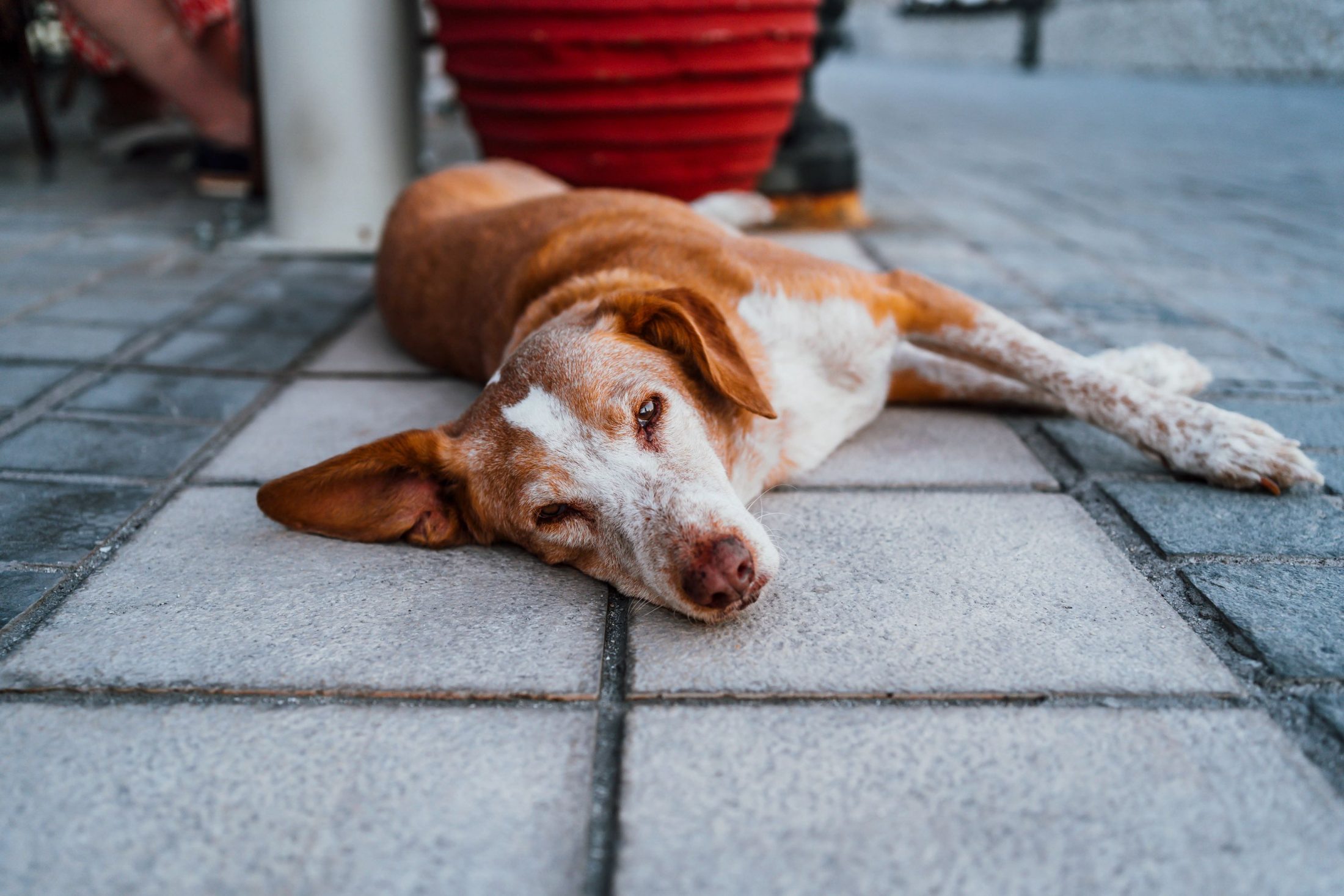
There are usually a few different possible explanations for certain canine behaviors. For example, a dog that obsessively licks, bites or scratches their skin could be suffering from allergies, parasites, or even anxiety, stress, or boredom. If this behavior continues, moist dermatitis (hot spots) may develop. Characterized by terribly itchy, painful open sores, hot spots in dogs don’t heal quickly due to the excessive attention dogs give to them.
What Comes First?
Hot spots in dogs can develop from excessive licking, or when moisture gets trapped in the coat. In other words, hot spots are the symptom of a condition, such as allergies, or they are the direct cause of intense itching. Either way, hot spots in dogs are painful and require immediate care.
Inflammation and Infection
Moist dermatitis can happen after a dog swims or bathes. If not thoroughly dried off, any residual moisture can get trapped beneath a thick fur coat. Hot spots in dogs are also directly linked to excessive licking from fleas, allergens, or stress. This cycle of trapped moisture, itching, and scratching causes inflammation. If left alone, infection can soon set in.
What to Look For
Dog owners are usually alerted to hot spots simply by observing their dog’s behavior. If they appear uncomfortable or distracted, or simply cannot stop scratching or licking at a certain area, it’s time to investigate what’s going on.
Hot spots in dogs are commonly found near the hips, limbs, and head, but can occur all over the body. You might see an area licked completely clean of fur around an angry, red sore or lesion. Fluid or blood may be coming from the lesion. Bacteria aid in the spread of hot spots, and increase the seriousness of this condition.
What to Do
Dog owners should move quickly to address and treat hot spots in dogs:
- Antibiotics are vitally important to stop infection.
- Anti-itch and/or anti-inflammatory medications can be relied upon to soothe the pain.
- Allergy medication can also reduce known triggers that cause itchy skin.
- An Elizabethan collar may be necessary to reduce your dog’s ability to reach problem areas.
Preventing Hot Spots in Dogs
One of the best things dog owners can do to prevent hot spots in dogs is to keep their dog’s coat dry as much as possible. If excessive licking is caused by a health condition or behavior, it’s important to have them addressed. Stress can be treated with a strict routine full of exercise, environmental enrichment, and behavioral training.
Your dog’s parasite prevention medication is the best way to guard against fleas and flea allergy dermatitis. Routine grooming and skin care are additional methods for a clean coat and healthy skin. Bacteria thrive in moist conditions, especially when the hair is tangled or matted.
Please call us at (732) 677-2180 with any questions or concerns about hot spots in dogs. Our veterinarians and staff members at True Care Veterinary Hospital are always here for you.

